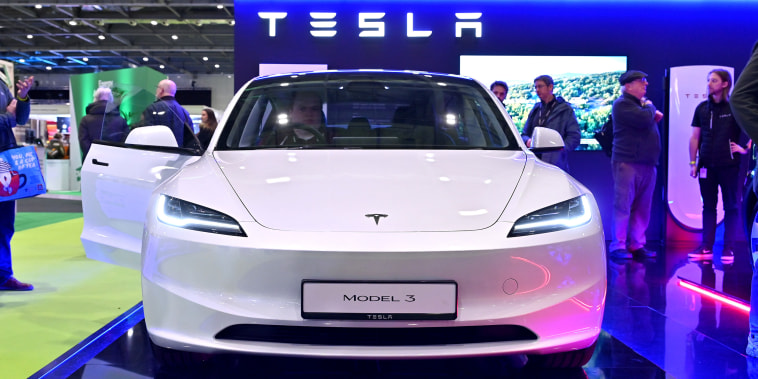The recent report on Tesla’s delivery numbers has resulted in a substantial plummet in their share prices, notably a drop of 8.5% compared to the same frame last year. This indicative setback for the electric vehicle behemoth implies a paradigm shift in the company’s economic trajectory, raising questions among stakeholders and market analysts.
Tesla, known for its pioneering role in the electric vehicle (EV) sector, continually broke records and set new standards for their industry. However, this depletion in the delivery figures marks an unforeseen detour. The recent decrease in deliveries to 310,048 cars, down from 340,000 from a year ago, came as a surprise to the tech and auto industry. Despite managing to navigate the turbulent waters of the pandemic and the global chip shortage with relative success compared to its competitors, these recent numbers evidence a significant shift in Tesla’s stride.
The sales slump can be attributable to several factors, while the global supply chain crisis remains at the forefront. The pandemic-induced crisis has hit the automobile industry severely, with Tesla being no exception. The prominence of chip shortage has exerted enormous pressure in the production line-up, forcing companies to halt or under-deliver production. This particular scenario has compelled Tesla to readjust its target and delivery cap, affecting the overall capacity and customer satisfaction, thereby causing a ripple effect on the share market.
Additionally, the stiffening competition in the EV market poses another challenge that may have contributed to the slump in delivery numbers. Established automakers like Ford, General Motors, and new entrants like Lucid Motors, and Rivian are all vying for a share of the electric vehicle market. This increased competition and wider choice for consumers can affect Tesla’s market dominance, reflected in its dipping delivery figures and subsequent share fall.
Tesla’s dwindling sales in China, the world’s largest EV market, has also pre-emptively contributed to the drop. The Chinese market accounted for a significant portion of Tesla’s revenue but a host of bad press regarding Tesla’s customer service and safety concerns coupled with Beijing’s push for local brands has resulted in decreasing sales.
Although the share prices have witnessed a drop, investors need not lose complete faith in Tesla. Tesla’s ability to innovate, develop breakthrough technology and its vision for a sustainable future fuel optimism regarding its potential recovery. Moreover, Tesla’s significantly profitable recent quarters indicate that delivery numbers are not the sole profit-driving factor for the company.
However, investors do need to observe the unfolding situation with caution. As the drop this time is not a consequence of profit margins or revenue rates, but rather on macroeconomic factors and the company’s operational circumstances. Thereby, projecting the need for Tesla to reconsider its business model, adapt and overcome to stay relevant in the continually evolving market landscape.
Overall, the recent fall in Tesla shares after an 8.5% drop in deliveries from last year poses important questions about the company’s forthcoming strategy. This could include addressing the chip shortage issue through in-house manufacturing or diversifying supply chains, rebuilding the damaged reputation in critical markets like China, and retaining superiority in the face of stiffer competition. This challenging period could very much turn into an opportunity for creating more resilient business strategies for Tesla in the future.




